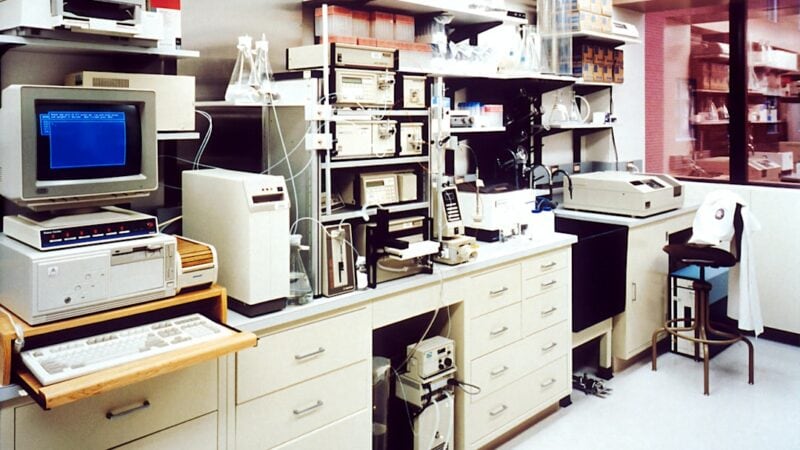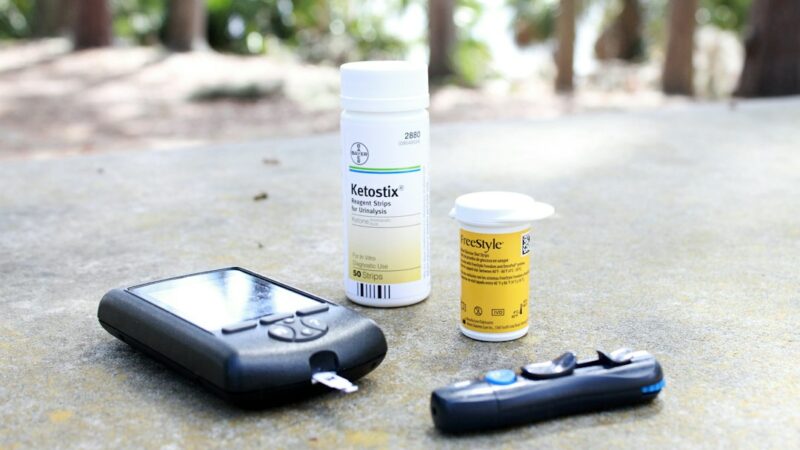Home Testing Kits for Celiac Disease: Order Online Now

Celiac Disease is a chronic autoimmune disorder that affects the small intestine and is triggered by the consumption of gluten. It is estimated that 1 in 100 people worldwide have Celiac Disease, but many go undiagnosed. Early diagnosis is crucial for managing the condition and preventing complications. One convenient option for testing is using home testing kits, which allow individuals to test for Celiac Disease in the comfort of their own homes.
Table of Contents
Key Takeaways
- Celiac Disease is an autoimmune disorder triggered by gluten consumption that damages the small intestine.
- Home testing kits for Celiac Disease offer convenience and privacy for those who suspect they may have the condition.
- Home testing kits for Celiac Disease are generally accurate, but false negatives can occur if gluten has not been consumed recently.
- Individuals with a family history of Celiac Disease or those experiencing symptoms should consider using a home testing kit.
- To properly use a home testing kit for Celiac Disease, follow the instructions carefully and consult with a healthcare professional if necessary.
What is Celiac Disease and how is it diagnosed?
Celiac Disease is an autoimmune disorder in which the body’s immune system reacts to gluten, a protein found in wheat, barley, and rye. When someone with Celiac Disease consumes gluten, it triggers an immune response that damages the lining of the small intestine. This damage can lead to a variety of symptoms, including abdominal pain, diarrhea, bloating, fatigue, and weight loss.
The diagnostic process for Celiac Disease typically involves a combination of blood tests and endoscopy. Blood tests can detect certain antibodies that are present in individuals with Celiac Disease. If these blood tests indicate a possibility of Celiac Disease, an endoscopy may be performed to examine the small intestine and confirm the diagnosis. During an endoscopy, a small camera is inserted through the mouth and into the small intestine to look for signs of damage.
The benefits of using home testing kits for Celiac Disease
Home testing kits offer several benefits for individuals who suspect they may have Celiac Disease. One of the main advantages is convenience. With a home testing kit, individuals can test for Celiac Disease in the comfort of their own homes without having to schedule appointments or visit a medical facility. This can be particularly beneficial for those who live in remote areas or have limited access to healthcare facilities.
Another benefit of home testing kits is that they allow individuals to avoid potential discomfort or anxiety associated with medical procedures. Some people may feel anxious about undergoing an endoscopy or may have difficulty scheduling the procedure due to other commitments. Home testing kits provide a non-invasive alternative that can help alleviate these concerns.
How accurate are home testing kits for Celiac Disease?
While home testing kits for Celiac Disease can be convenient, it is important to consider their accuracy. Studies have shown that home testing kits can be reliable in detecting Celiac Disease, but they are not as accurate as medical testing. False negatives and false positives can occur with home testing kits, meaning that someone may test negative for Celiac Disease when they actually have it, or vice versa.
It is important to note that a positive result from a home testing kit should be followed up with medical testing to confirm the diagnosis. This is because the gold standard for diagnosing Celiac Disease is still an endoscopy with biopsy. Medical professionals can also provide guidance on further testing and treatment options.
Who should consider using a home testing kit for Celiac Disease?
Home testing kits for Celiac Disease can be beneficial for individuals who are at risk for the condition. This includes individuals with a family history of Celiac Disease, as there is a genetic component to the condition. Additionally, individuals with certain medical conditions, such as type 1 diabetes or autoimmune thyroid disease, are also at an increased risk for developing Celiac Disease.
Early detection of Celiac Disease is crucial for preventing complications and managing the condition effectively. By using a home testing kit, individuals can take control of their health and potentially identify Celiac Disease before it causes significant damage to the small intestine.
How to properly use a home testing kit for Celiac Disease

Using a home testing kit for Celiac Disease is relatively straightforward. Most kits include detailed instructions, but here is a general step-by-step guide:
1. Read the instructions carefully: Familiarize yourself with the contents of the kit and the steps involved in the testing process.
2. Prepare the testing materials: Ensure that you have all the necessary materials, including lancets for blood collection, test strips, and a collection tube.
3. Collect a blood sample: Use the lancet provided to prick your finger and collect a small amount of blood. Follow the instructions for proper blood collection.
4. Apply the blood to the test strip: Place a drop of blood on the designated area of the test strip as instructed.
5. Wait for the results: The test strip will indicate whether or not antibodies associated with Celiac Disease are present in your blood. Follow the instructions for the recommended waiting time.
6. Interpret the results: The test strip will display either a positive or negative result. Refer to the instructions to understand what each result means.
Understanding the results of a home testing kit for Celiac Disease
The results of a home testing kit for Celiac Disease can be either positive or negative. A positive result indicates that antibodies associated with Celiac Disease were detected in your blood, suggesting that you may have the condition. However, it is important to remember that a positive result from a home testing kit should be followed up with medical testing to confirm the diagnosis.
A negative result, on the other hand, suggests that antibodies associated with Celiac Disease were not detected in your blood. However, it is still possible to have Celiac Disease even with a negative result from a home testing kit. False negatives can occur, so it is important to consult with a healthcare professional if you have persistent symptoms or concerns.
What to do if you test positive for Celiac Disease
If you test positive for Celiac Disease using a home testing kit, it is important to seek medical care and treatment. A healthcare professional can confirm the diagnosis through further testing, such as an endoscopy with biopsy. They can also provide guidance on managing the condition and making necessary lifestyle changes.
The main treatment for Celiac Disease is a strict gluten-free diet. This means avoiding all sources of gluten, including wheat, barley, and rye. A healthcare professional or registered dietitian can provide guidance on how to follow a gluten-free diet and ensure that you are getting all the necessary nutrients.
The convenience of ordering home testing kits online
Ordering home testing kits for Celiac Disease online is incredibly convenient. Many reputable companies offer these kits for purchase on their websites, and they can be delivered right to your doorstep. This eliminates the need to visit a physical store or healthcare facility, saving you time and effort.
Additionally, ordering home testing kits online may also offer cost savings compared to medical testing. While the cost of home testing kits can vary depending on the brand and features, they are generally more affordable than medical procedures such as an endoscopy. This can make testing for Celiac Disease more accessible to individuals who may not have insurance coverage or who are looking for a more affordable option.
Comparing different brands of home testing kits for Celiac Disease
There are several different brands of home testing kits for Celiac Disease available on the market. When choosing a kit, it is important to consider factors such as accuracy, ease of use, and cost.
Some popular brands include Everlywell, imaware™, and LetsGetChecked. These kits typically include all the necessary materials for testing, along with detailed instructions. It is important to read reviews and compare different brands before making a decision to ensure that you are choosing a reputable and reliable kit.
Frequently asked questions about home testing kits for Celiac Disease
1. Are home testing kits for Celiac Disease reliable?
While home testing kits can be reliable in detecting Celiac Disease, they are not as accurate as medical testing. False negatives and false positives can occur, so it is important to follow up with medical testing if you have persistent symptoms or concerns.
2. Can I use a home testing kit if I am already on a gluten-free diet?
Yes, you can still use a home testing kit if you are already on a gluten-free diet. However, it is important to note that the accuracy of the test may be affected if you have already eliminated gluten from your diet.
3. Can children use home testing kits for Celiac Disease?
Home testing kits for Celiac Disease are generally not recommended for children. It is best to consult with a healthcare professional if you suspect your child may have Celiac Disease.
Early diagnosis of Celiac Disease is crucial for managing the condition and preventing complications. Home testing kits offer a convenient option for individuals who suspect they may have Celiac Disease. While these kits can be reliable in detecting the condition, it is important to follow up with medical testing to confirm the diagnosis and receive appropriate care and treatment. By taking control of their health and using home testing kits, individuals can potentially identify Celiac Disease early and make necessary lifestyle changes to manage the condition effectively.
Looking for more health-related information? Check out TurnToBeHealthy.com, where you can find a variety of articles to help you on your wellness journey. From a comprehensive sitemap that allows you to easily navigate through the site’s content (https://turntobehealthy.com/sitemap/), to understanding why your kidneys might hurt at night and how to make tweaks for relief (https://turntobehealthy.com/8-tweaks-of-why-do-my-kidneys-hurt-at-night/), and even a BMI calculator tool to help you assess your body mass index (https://turntobehealthy.com/bmi-calculator-tool/). Explore these resources and gain valuable insights into maintaining a healthy lifestyle.
FAQs
What is celiac disease?
Celiac disease is an autoimmune disorder that affects the small intestine. It is triggered by the consumption of gluten, a protein found in wheat, barley, and rye.
What are the symptoms of celiac disease?
Symptoms of celiac disease can vary widely and may include abdominal pain, bloating, diarrhea, constipation, fatigue, and weight loss.
How is celiac disease diagnosed?
Celiac disease is typically diagnosed through blood tests and a biopsy of the small intestine.
What are home testing kits for celiac disease?
Home testing kits for celiac disease are designed to detect the presence of antibodies in the blood that are associated with the condition. These kits can be ordered online and used at home.
How do home testing kits for celiac disease work?
Home testing kits for celiac disease typically involve collecting a small blood sample using a finger prick. The sample is then sent to a laboratory for analysis.
Are home testing kits for celiac disease accurate?
Home testing kits for celiac disease can be accurate, but it is important to note that they are not a substitute for a medical diagnosis. If you suspect you have celiac disease, it is important to consult with a healthcare professional.
Where can I order home testing kits for celiac disease?
Home testing kits for celiac disease can be ordered online from a variety of retailers and healthcare providers. It is important to choose a reputable source for these kits.






